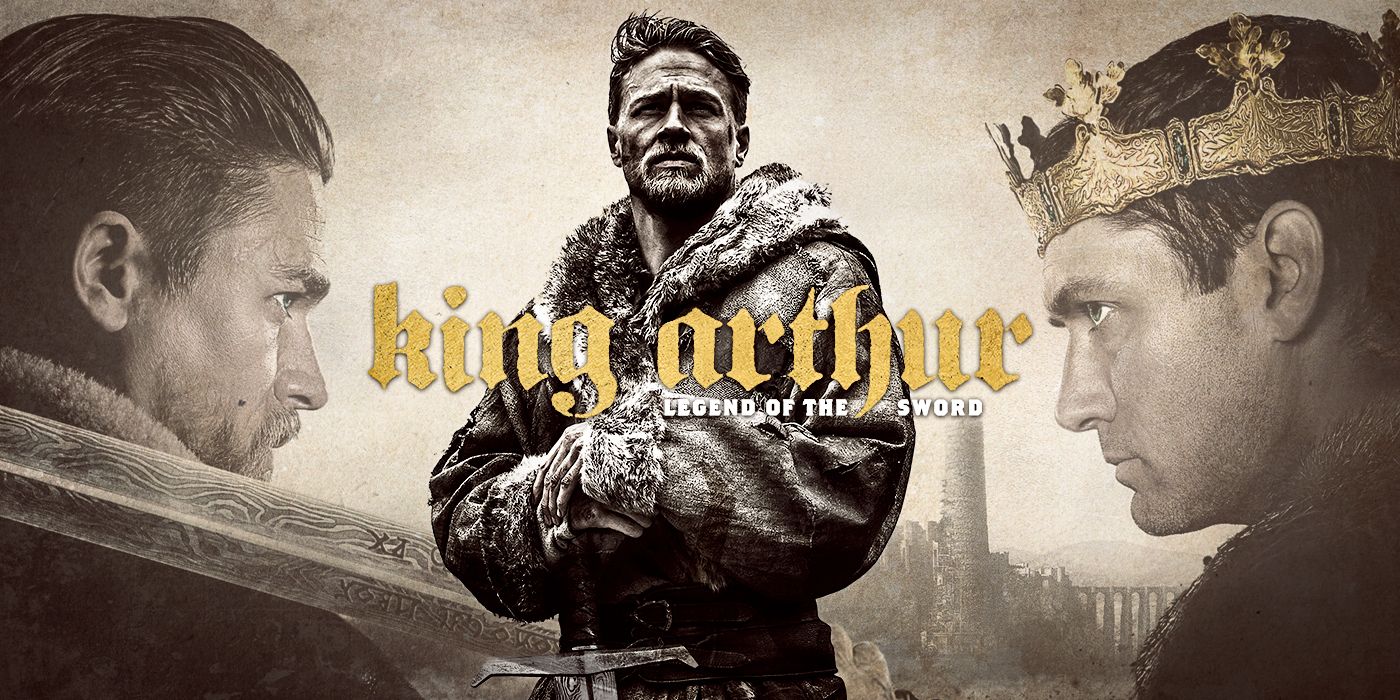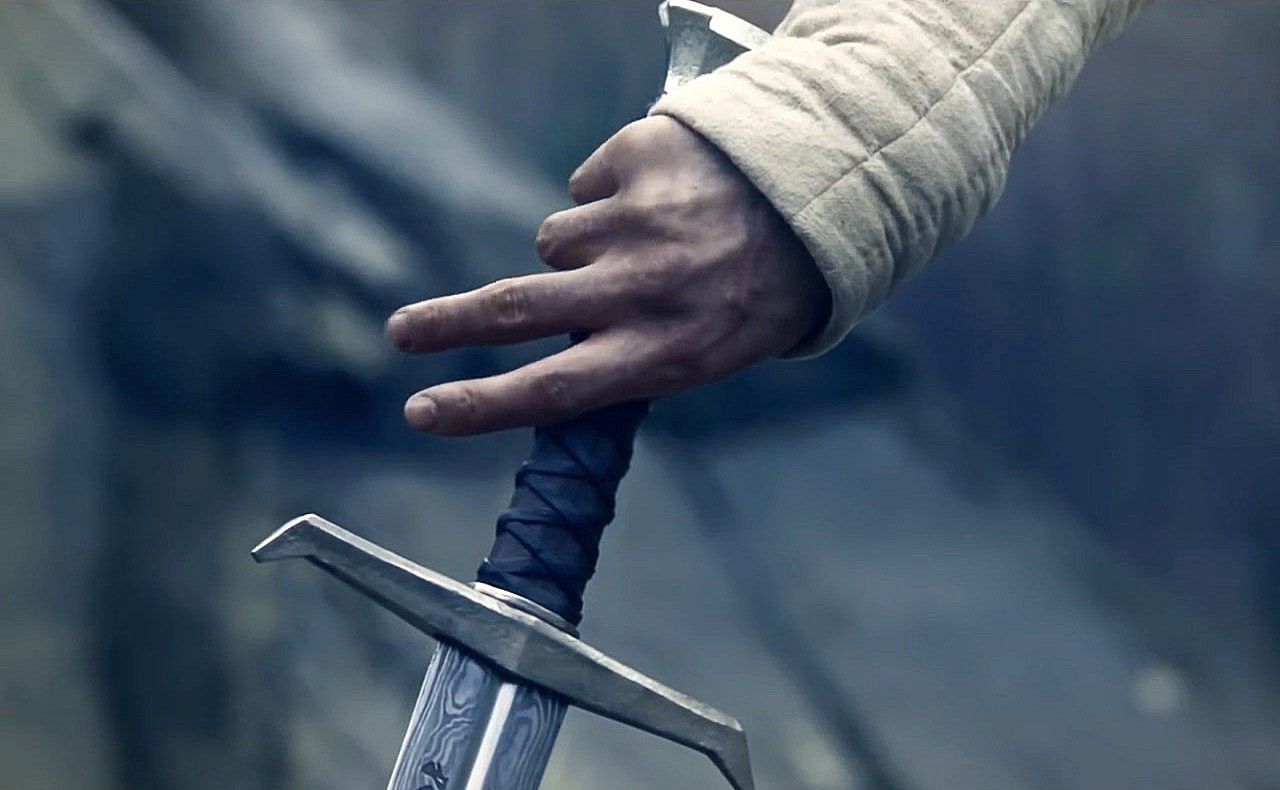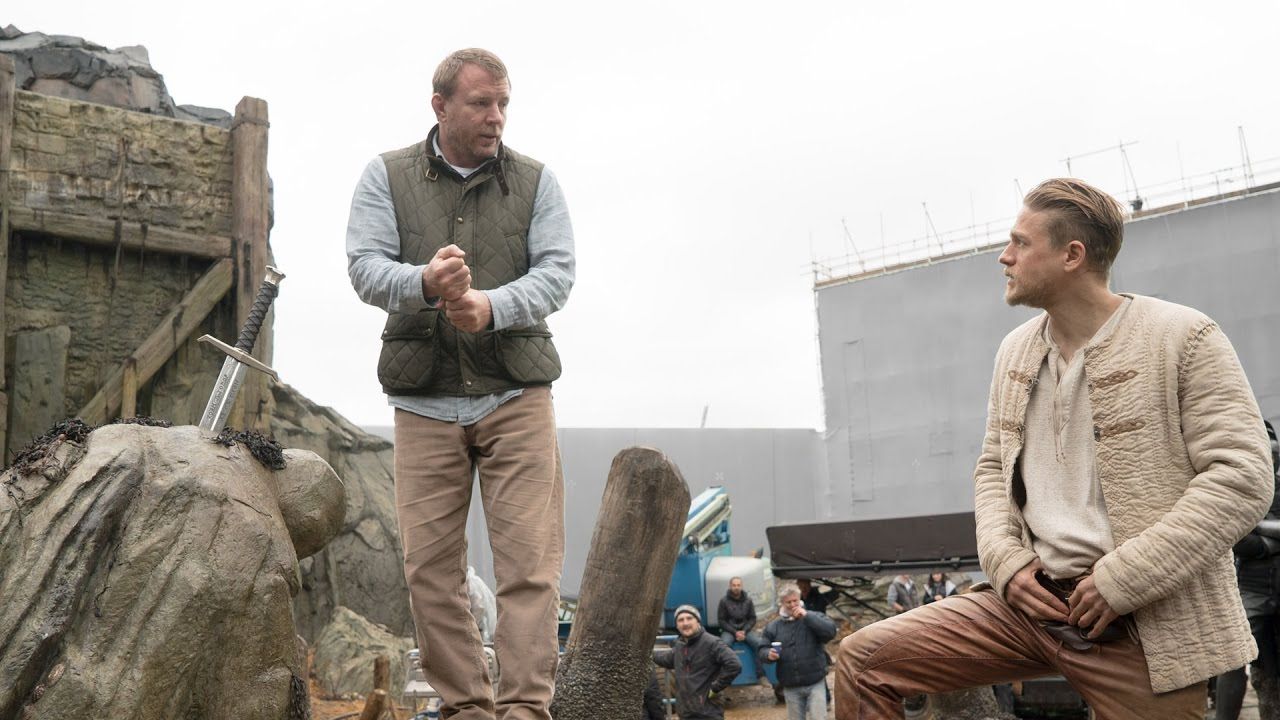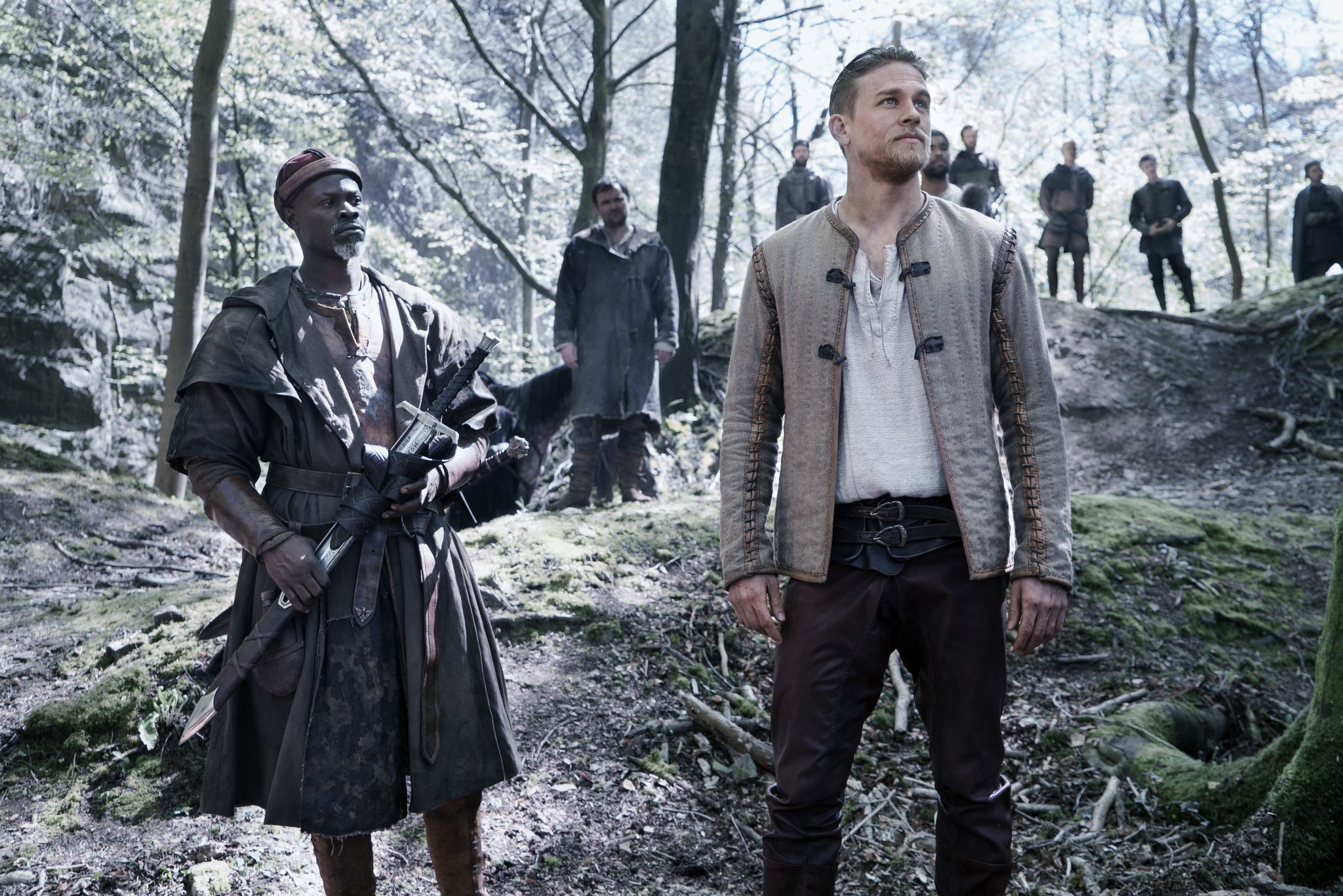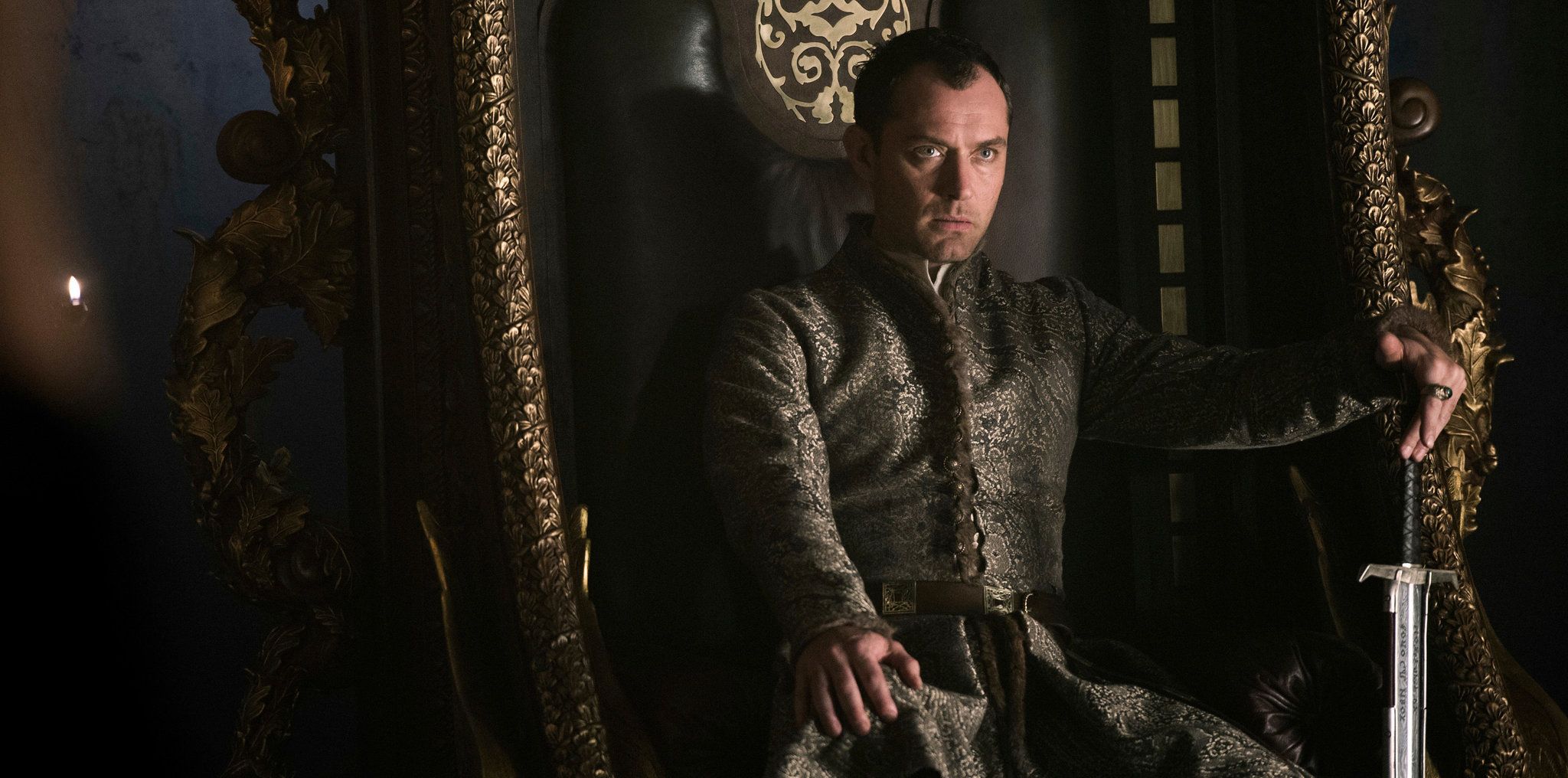The latest epic The Green Knight offers a surreal take on an Arthurian legend, proving that despite being around for centuries there’s always a way to put the spin on the tales of King Arthur and his Knights of the Round Table. Movies inspired by these legends have been popping up for decades, and here I will come to the defense of one very, very, expensive take on King Arthur that deserves to be remembered for more than its box office implosion: King Arthur: Legend of the Sword.
The Guy Ritchie-directed fantasy epic was meant to be the first in a shared universe of movies because seemingly everything is nowadays, and Warner Bros. was so confident in this project they dumped around $175 million into the production. But neither audiences nor critics were having it, and the movie whiffed out at around $140 million around the world, losing tens of millions for WB. But while the movie has been relegated to the bin of great box office blunders, there are several reasons why this movie rules incredibly hard, and here I will list a few that will hopefully validate giving it another go (or even your first) and revel in this bonkers, once-in-a-lifetime take on the legend of King Arthur.
The Fantastical Visuals/Production Design
Legend of the Sword uses its opening minutes to show off elephants that make the Mûmakil from Lord of the Rings look like French bulldogs completely annihilating soldiers on the ground and bashing down structures. Looking at that balls-to-the-wall sequence – as well as other the insane set pieces – it’s no wonder where the price tag came from. But Ritchie and his team used every penny to craft a wild fantasy adventure that establishes its own unique world filled with gnarly creatures, superpowered swordplay, diabolical magic, and arresting production and costume design – much of it brought to kinetic life with James Herbert’s editing. Fantasy movies are a gamble (as made clear here), but everything was put on the line to make Legend of the Sword a high-fantasy blockbuster that brought the genre into the modern movie landscape, and it looks and feels like something we’re likely not going to see again any time soon.
Guy Ritchie’s Direction
Ritchie is one of those directors where even if his movie isn’t great, they still have a distinct sense of style and madcap energy, and with Legend of the Sword, he brings it all together to infuse what was arguably a blank check with a brazen ferocity. His hallmarks – from the kind of action seen in Sherlock Holmes to the cast interplay of Snatch – help give the impressive visual scope the needed energy to feel like more than just empty CGI, all while setting the plotting apart from the many, many other films of the medieval genre. His decision with the co-writing team to give this origin story a gritty, grime-y gangster feel to it could’ve been a turn-off for some, but that style is simply something he does so well that with Arthur’s gutter-to-greatness arc it works quite well, infusing a fantasy adventure with a heist-movie feel that further gives King Arthur a distinct personality in an age when so many bloated blockbusters are duller than a cardboard Excalibur.
The Ensemble
Great casts are another hallmark of Ritchie’s, and with Charlie Hunnam leading the crew as the fast-talking, Dickensian take on Arthur, the cast as a whole step up to the plate to make the soon-to-be Knights of the Roundtable a likable band of rogues. Djimon Hounsou, Aidan Gillen, Kingsley Ben-Adir, Tom Wu, Neil Maskell, Annabelle Wallis, and Àstrid Bergès-Frisbey are all welcome personalities that flesh out Arthur’s journey, with Eric Bana too making the most out of his short time as the badass Uther Pendragon. They dive headfirst into the crackling dialogue and high-energy action with not a dull sword in the bunch, and it’s a shame we won’t be able to see them flesh out their characters more in the future.
The Villain
But operating on his own platform is Jude Law in the villain role as Vortigern, playing him with seductive energy. Law plays the tyrannical leader who has his soldiers salute him en masse like a fascist dictator with delectable aplomb, all while wearing the hell out of Annie Symons’ costumes. Velvet jackets, leather pants, long fur coats, menacing-yet-cool armor; Law’s Vortigern looks like he could rule the world with an iron gauntlet and still make it time to headline the latest Tom Ford show. But he also plays to the villains’ reluctance and turmoil, sacrificing his wife to morph into a child demon knight to kill his brother (Bana). His work is measured and quietly evil compared to the fast-paced nature of everything else and makes the case for Law to have more dastardly roles to chew on while out-dressing everyone around.
The Music
Saving the best for last, Daniel Pemberton’s score is the true star of Legend of the Sword. Even among all the impressive visuals and fine performances, the visceral, raw, breathtaking music blows past them all with a cacophony of sounds and influences that probably shouldn’t work together but 100 percent does. Whether it’s the use of medieval instruments of all shapes and sizes to the guttural breaths and screams that lends a welcome dose of physicality for the faster-paced scenes, the level of personality Pemberton injects into the score to make Legend of the Sword sound unlike anything in the genre is worthy of endless praise. Arguably more than the cast, visuals, and editing, Pemberton’s score sets the tone for the wildness to come, and if you’re swept into the adventure like I was, we have this suitably fantastic score to thank.

